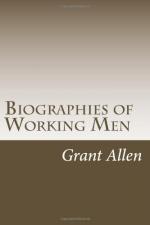At last, when James was about fifteen, his longing for the sea grew so strong that his mother, by way of a compromise, allowed him to go and try his luck with the Lake Erie captains at Cleveland. Shipping on the great lakes, where one can see neither bank from the middle of the wide blue sheet of water, and where wrecks are unhappily as painfully frequent as on our own coasts, was quite sufficiently like going to sea to suit the adventurous young backwoodsman to the top of his bent. But when he got to Cleveland, a fortunate disappointment awaited him. The Cleveland captains declined his services in such vigorous seafaring language (not unmixed with many unnecessary oaths), that he was glad enough to give up the idea of sailoring, and take a place as driver of a canal boat from Cleveland to Pittsburg in Pennsylvania, the boat being under the charge of one of his own cousins. Copper ore was then largely mined on Lake Superior, where it is very abundant, carried by ship to Cleveland, down the chain of lakes, and there transferred to canal boats, which took it on to Pittsburg, the centre of a great coal and manufacturing district in Pennsylvania, to be smelted and employed in various local arts. Young Garfield stuck for a little while to the canal business. He plodded along wearily upon the bank, driving his still wearier horse before him, and carrying ore down to Pittsburg with such grace as he best might; but it didn’t somehow quite come up to his fancy picture of the seaman’s life. It was dull and monotonous, and he didn’t care for it much. In genuine American language, “he didn’t find it up to sample.” The sea might be very well in its way; but a canal was a very different matter indeed. So after a fair trial, James finally gave the business up, and returned to his mother on the little homestead, ill and tired with his long tramping.
While he was at home, the schoolmaster of the place, who saw that the lad had abilities, was never tired of urging him to go to school, and do himself justice by getting himself a first-rate education, or at least as good a one as could be obtained in America. James was ready enough to take this advice, if the means were forthcoming; but how was he to do so? “Oh, that’s easy enough,” said young Bates, the master. “You’ll only have to work out of hours as a carpenter, take




